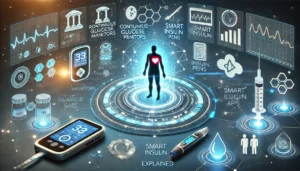alt=”Description of image content” style=”width:650px; height:auto;”/>
“`html
Rising High Blood Pressure in American Youth Alarms Health Experts
In recent years, the prevalence of high blood pressure among American adolescents and young adults has become a significant cause for concern. As more youths in the United States experience elevated blood pressure, health experts are raising alarms about the potential long-term consequences if this trend is not addressed. This blog post delves into the underlying factors contributing to this rise, the risks involved, and the necessary steps to mitigate this growing health threat.
The Growing Epidemic of High Blood Pressure in Young People
High blood pressure, or hypertension, has traditionally been considered a health issue more prevalent among older adults. Unfortunately, a shift in this trend is becoming evident, as younger populations are increasingly being diagnosed with hypertension.
Key Statistics Highlighting the Concern
- Approximately 1 in 25 youth aged 12-19 have high blood pressure.
- The prevalence of hypertension among adolescents has surged by 27% over recent decades.
- Young adults aged 18-24 are also at risk, with rising numbers being diagnosed with high blood pressure.
These statistics underline a pressing need to address high blood pressure among youths to prevent further health complications later in life.
Underlying Causes Contributing to High Blood Pressure
Several factors are contributing to the alarming rise in high blood pressure among American adolescents and young adults. Understanding these causes is crucial to implementing effective preventative measures.
Poor Diet and Nutrition
Poor dietary habits are a major contributor to hypertension. Many young people consume diets high in sodium, sugar, and unhealthy fats, and low in fruits, vegetables, and whole grains. This nutritional imbalance leads to obesity and elevated blood pressure levels.
Physical Inactivity
Physical inactivity is another contributing factor. Technological advancements have facilitated a sedentary lifestyle among the youth, with more time spent in front of screens and less time dedicated to physical activities. This lack of exercise further exacerbates the risk of developing hypertension.
Stress and Mental Health
Mental health issues and stress also play significant roles in the development of high blood pressure. The pressures of academic performance, social interactions, and family expectations contribute to heightened stress levels in adolescents and young adults, potentially leading to hypertension.
The Consequences of High Blood Pressure in Youth
The health implications of high blood pressure can be profound, especially when they begin at a young age. Addressing hypertension early is pivotal to prevent serious health issues in the future.
Risks of Untreated Hypertension
- Increased risk of heart disease and stroke: Prolonged high blood pressure can damage blood vessels and heart tissue.
- Potential for kidney damage: Hypertension can impair kidney function over time.
- Likelihood of developing other chronic conditions: Untreated, high blood pressure can lead to diabetes and metabolic syndrome.
These potential health risks underscore the importance of early detection and intervention for high blood pressure in young populations.
Strategies to Combat High Blood Pressure Among Youths
Reducing the prevalence of high blood pressure in adolescents and young adults requires a comprehensive approach that involves lifestyle changes, education, and healthcare intervention.
Promoting a Healthy Lifestyle
Encouraging a healthy lifestyle is one of the most effective ways to prevent and manage high blood pressure. This involves:
- Adopting a balanced diet: Emphasize the consumption of fruits, vegetables, whole grains, and lean proteins while limiting sodium and sugar intake.
- Increasing physical activity: Encourage regular exercise through sports, walking, cycling, or any enjoyable physical activity.
- Prioritizing mental health: Provide support and resources for mental health management, stress reduction techniques, and healthy coping mechanisms.
Integrating Education and Awareness
Education is a vital tool in combating youth hypertension. Schools, communities, and healthcare providers can play a role in spreading awareness about the risks of high blood pressure and the benefits of healthy living choices.
Regular Health Screenings
Encouraging adolescents and young adults to undergo regular health check-ups can help in the early detection and treatment of high blood pressure, preventing more severe health conditions later on.
Conclusion: A Collective Effort to Safeguard Youth Health
Addressing the rise in high blood pressure among American youth is not just a medical necessity; it is a societal responsibility. Collaborative efforts between families, schools, healthcare providers, and policymakers are crucial to implement effective strategies that promote a healthy lifestyle and prevent hypertension-related health complications.
By taking proactive measures today, we can pave the way for a healthier and more resilient generation in the future.
“`



